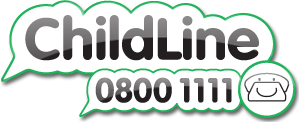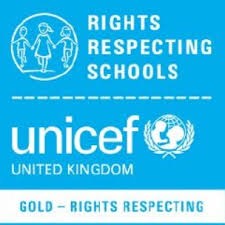Wednesday 8th July 2020
|
Time |
Learning |
|
9-9:30 |
Joe Wicks virtual PE – bodycoachtv on youtube.com (Joe Wicks will now only be only be on a Monday and Wednesday) |
|
9:30 – 9:50 |
Spelling At the bottom of the page is the year 3 and 4 statutory words spelling activity book. Do not complete the whole thing today. You will do a little bit each day. Only complete 20 mins of practise. These are the words set by the government so you are assessed on these. Take your time and make sure you know them. |
|
9:50-10:30 |
This week we will be using Oak Academy to help our learning. Click on the link below to complete the lesson. You will do a quiz to see what you already know, watch a tutorial and complete activities. There will be far less printing and at the beginning of each session they will tell you what resources you need. Let me know if you need anything. LO: to understand that area can be measured in cm squared https://classroom.thenational.academy/lessons/area-part-3-cm2 |
|
10:30-11:00 |
Break time/snack time |
|
11:00 – 11:45 |
Video – Notetaking LO: to effectively take notes SC1: I can paraphrase information SC2: I can substitute words with symbols or pictures SC3: I can keep my notes organised
Top tips for note-taking: Paraphrase information - Copying text can be helpful but so is putting ideas into your own words. It means you can still include new vocabulary words without copying out everything! Separate main ideas from details - Structure content in a way that makes it easy to quickly identify the main ideas and specific details. Highlighting, colour coding, underlining, and using punctuation and large size or capital letters, are effective ways to signal different kinds of information. Don’t worry about complete sentences - Notes are not formal pieces of writing. Fragments and abbreviations are perfectly acceptable as the emphasis should be on the ideas vs. the language and format used to express them. Here’s where mind maps can be effective. Do include diagrams and bullet points - Notes allow you to structure text in innovative ways so you should include diagrams and drawings where appropriate. Bullet points are recommended over recording ideas in a block of text. Ensure handwritten text is easy to read - Notes are often taken quickly. This means they may not be overly neat but that doesn’t mean they shouldn’t be legible. Keep notes organised - It’s a good idea to write subheadings at the top of notes, along with a title that describes the content. |
|
11:45- 12:15 |
TTRockstars or Hit the button Practise your times tables or number facts to keep your recall as fast as possible. |
|
12:15- 1:15 |
Lunch |
|
1:15- 2:00 |
LO: to understand how to research effectively
How to start researching a topic The first step is to identify what’s actually being asked. Plan your work by coming up with subheads or a paragraph plan; this will help focus your mind on the specific areas they need to research. Researching using the internet Using the right search terms. To do a successful search, you need to put the right words into the search box. If your wording is too specific, you may not find the information you need, but if it’s too loose, you’ll find too much irrelevant detail. Spelling mistakes can also throw a search off kilter. It’s also important to look beyond the first couple of hits, especially as one of these is likely to be Wikipedia, which isn’t always accessible for you, or reliable. Using a website further down the list not only opens the possibility of finding different information, but also means your final piece of work won’t be a carbon copy of everyone else’s. Assessing reliable and unreliable sources. One of the trickiest parts of using the internet for research is developing an understanding that not all sources are reliable. For example, the information on websites produced by museums, well-known charities or institutions like the BBC or NHS is likely to be reliable, while those run by lesser known organisations or individuals may not be. Skimming and scanning. Being able to skim-read a piece of information to determine whether it’s going to be useful is an important skill that saves children the effort of reading vast amounts of text in detail, only to discover that it’s not what you need. Although using books might seem time-consuming, it can actually be more efficient than wading through the vast amounts of information online. Avoiding plagiarism (copying someone else’s work and saying it is your own) The idea of a primary school child being pulled up for plagiarism may seem far-fetched, but it’s important that you get used to putting information into your own words. Not only will this avoid you getting into trouble later on in your education, but it also means you’ve understood the information you’ve found, rather than just copying and pasting it. |
|
2:00- 2:30 |
Exercise – e.g. mindfulness yoga, fresh air in the garden, run up and down the stairs seeing if you can get faster every time! |
|
2:30-3:00 |
Start your work!! Now you have all the tools and your plans for doing your project you need to crack on. Use your time effectively because by the end of Friday you need to have your first draft done for each of your areas. If you need anything at all, do email me (my email address is on the website) and I will do my best to support you. |
|
3:00 – 3:15 |
Federation Story Time!!
|



